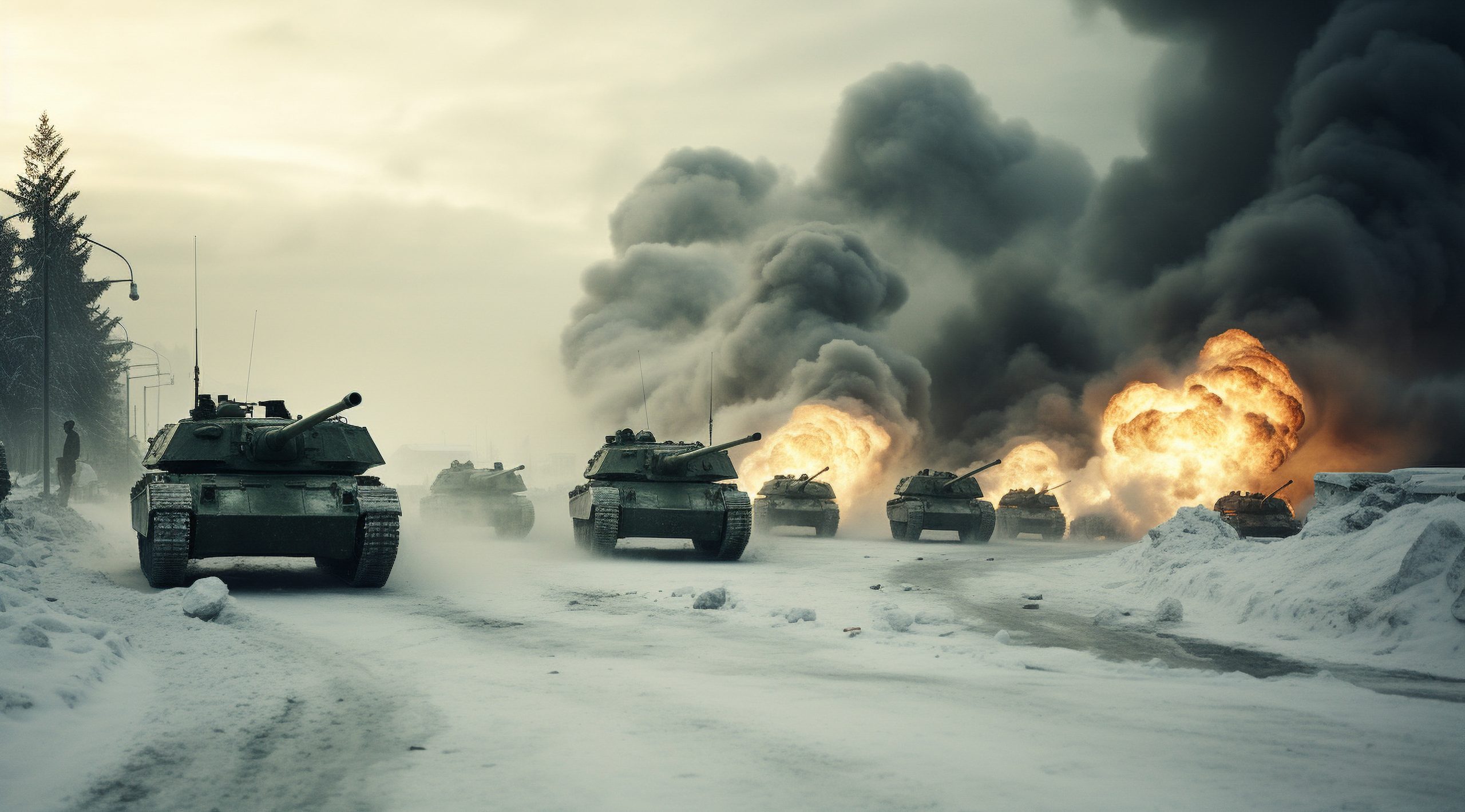As Russian forces continue to push forward in the southeast, Ukrainian troops face an uphill battle to defend the strategic city of Pokrovsk. Situated on the western edge of Donetsk Oblast, Pokrovsk is crucial as it acts as a vital logistics hub for Ukrainian operations. However, with Russian forces advancing from the east and south, and the capture of key villages like Shevchenko, Pokrovsk is now less than 4 kilometers away from the frontlines. The situation has intensified, with heavy fighting reported in recent days as Russian troops deploy all available resources in an attempt to breach Ukrainian defenses.
Commander-in-Chief of the Ukrainian Armed Forces, Oleksandr Syrskyi, stated, “The fighting is extremely fierce. The Russian invaders are throwing all available forces forward, trying to break through the defense of our troops.” Ukrainian forces are being hampered by an infantry shortage and internal disputes within military leadership. The city’s strategic significance cannot be overstated, as its fall would pave the way for Russian forces to advance further toward Dnipropetrovsk Oblast and the major regional hub of Dnipro, a city of over 1 million people, which plays a central role in Kyiv’s southeast operations.
Pokrovsk remains the last stronghold in the southwestern part of Donetsk Oblast, holding back Russia from pushing further into Ukraine’s eastern and central territories. The local population has dwindled to around 11,000, down from over 60,000 before the war. The city has faced significant damage from Russian shelling, leaving most utilities and businesses nonfunctional. The city’s power infrastructure has been destroyed, cutting off heating and gas supplies, while local authorities have urged residents to evacuate.
However, evacuations have proven difficult. Ukrainian state-owned railway Ukrzaliznytsia canceled trains to Pokrovsk due to the risk of Russian attacks, shifting operations to Pavlohrad, 100 kilometers away. As of December, Russian troops have made notable advances in nearby villages, including Shevchenko, now positioned within 4 kilometers of Pokrovsk. The Ukrainian army has been attempting to recover lost positions, particularly in areas like Novotroiitske and Vidrodzhennia, but the relentless Russian assault has placed immense pressure on Ukrainian forces.
The current battle for Pokrovsk is a clear example of Russia’s strategy to weaken Ukraine’s defenses through constant assaults, even when unsuccessful, to deplete ammunition and resources. While Ukrainian forces have shown resilience, the manpower imbalance is a growing concern, as Russia continues to amass greater numbers of troops. Ukraine’s lack of sufficient personnel for defense rotations and combat duties remains a critical vulnerability, compounded by logistical challenges in sustaining operations along the frontlines.
Adding to the complexity of the situation, Russia’s use of drones has become increasingly decisive in shaping the battlefield. Drones provide Russian forces with superior intelligence, making it easier to target Ukrainian positions, infrastructure, and logistics routes. This technological advantage has significantly impacted the defense of key Ukrainian cities, including Pokrovsk.
The Regional Impact: Withdrawal of Member States from ECOWAS and Ambitious Infrastructure Plans
As Ukraine continues to fight for its territorial integrity, broader geopolitical shifts are unfolding in West Africa, where three key countries—Mali, Burkina Faso, and Niger—have recently withdrawn from the Economic Community of West African States (ECOWAS) due to escalating tensions and political unrest. These nations, now under military rule, have challenged ECOWAS’s authority, leading to a reduction in the bloc’s membership from 15 to 12 states.
Despite this setback, ECOWAS remains committed to regional cooperation and stability, with plans for ambitious infrastructure projects that could foster economic growth and regional integration. One such initiative is a planned 1,028-kilometer highway and railway network aimed at connecting several West African nations, including Ivory Coast, Ghana, Togo, Benin, and Nigeria. The project is designed to enhance trade, improve connectivity, and create much-needed jobs for the region’s populations. Set to begin in 2026, the infrastructure corridor will serve as a lifeline for both coastal and landlocked countries, boosting regional trade, reducing transportation costs, and facilitating the movement of goods and people across borders.
The highway and railway project, estimated to cost $15.6 billion, will be a key component in strengthening ECOWAS’s economic integration. As the transportation corridor improves, it is expected to enhance trade flows and generate up to 70,000 jobs in construction and related sectors. The initiative also holds the potential to reintegrate the recently withdrawn states of Mali, Burkina Faso, and Niger by offering tangible economic benefits, which may lead them to reconsider their exit from the regional organization. ECOWAS’s infrastructure strategy has the potential to not only boost regional prosperity but also act as a tool for political rapprochement, helping to ease tensions and foster long-term stability.
Furthermore, ECOWAS remains committed to upholding human rights and democratic governance in the region, addressing concerns regarding military coups and authoritarian rule. The organization has called for greater respect for human rights, peace, and democracy within its member states, though its efforts have been hampered by the political instability and security challenges in countries like Mali, Burkina Faso, and Niger. These efforts are particularly relevant as ECOWAS grapples with balancing political pressure, regional stability, and economic growth.
The Challenges and Future Outlook
Both Ukraine’s battle for Pokrovsk and ECOWAS’s regional efforts underscore the challenges facing nations caught in political, military, and economic turmoil. In Ukraine, the struggle to defend strategic territories is compounded by internal military strains, while Russian advances continue to erode Ukrainian resources and manpower. However, the defense of Pokrovsk remains crucial not only for Ukraine but also for the broader stability of the region, with the potential to disrupt Russian ambitions in the southeast if successfully defended.
On the African continent, the withdrawal of three states from ECOWAS presents a unique challenge for the bloc. Yet, ECOWAS’s focus on long-term economic integration through the highway and railway network represents a hopeful step toward regional unity and stability. If successful, this project could help reduce economic disparities, create jobs, and promote trade across West Africa. It could also encourage former member states like Mali, Burkina Faso, and Niger to rejoin ECOWAS, fostering a renewed commitment to peace, democracy, and human rights in the region.
In conclusion, while Ukraine faces immense challenges in defending key territories like Pokrovsk, regional projects like ECOWAS’s infrastructure corridor offer a glimpse of hope, showing that economic integration and political stability can be powerful tools in addressing regional tensions and fostering long-term peace.
References
Kyiv Independent. Outnumbered and outgunned, Ukraine struggles to halt Russian advance near Pokrovsk. Kyiv Independent.
Image by freepik



